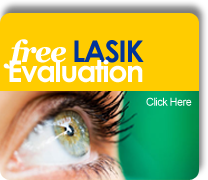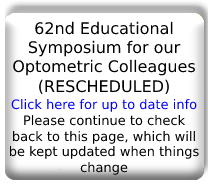Northern New Jersey Eye Institute on ZocDoc
Tips for Proper Care of Your Eyes and Contact Lenses
It should come as no surprise that many people with poor eyesight do not want to wear eyeglasses, they opt to wear contact lenses instead. Contact lenses are usually designed to improve vision (most commonly by correctingrefractive error), though some people use colored contact lenses that are designed to change the appearance or color of the eye. Contact lenses are classified as either ‘hard contact’ lens or ‘soft contact’ lenses. Soft lenses are commonly used because they are comfortable and they allow oxygen to enter the eye unlike the hard contact lenses.

Regardless of whether you use soft or hard contact lenses, proper care of these lenses is critical. Here are a number of instructions that contact lens wearers should review and follow to avoid complications:
-
Before handling contact lenses, wash and rinse hands thoroughly. Be sure that your hands and fingers are clean before touching the lenses, a tiny scratch or foreign material in the film can cause eye irritation or blurred vision.
-
If you use hair spray, mascara, eye liner, eye shadow or make up, be sure to put them on first, before you put in your contact lenses. It’s also a good idea to keep your fingernails short and smooth to avoid damaging your lenses or scratching the eye.
- Never use tap water directly on lenses. Contact lenses soaked in tap water feel heavier in the eyes. Furthermore, microorganisms can live in tap water, causing infection or sight damage.
- Before putting on contact lenses, put them in your palm with solution and rub with your index finger, to remove any dirt or other impurities.
- Always store your contact lens in a clean contact lens case soaked in the solution.
- Do not wear another person's contact lenses. Using other people's contact lenses can spread any infection from their eyes to yours.
- Avoid sleeping with contact lenses in your eyes. Closed eyes don't carry enough oxygen to the eye and they might also get stuck on the corner of your eye and you will have a hard time getting them out. Sleep with your contact lenses on only if you are prescribed "extended wear" contacts or as prescribed by your eye professional.
- Don't let the tip of solution bottle touch other surfaces, including fingers or eyes, as it can contaminate the solution.
- Contact lenses may cause your eyes to become sensitive to certain lights and sunlight. It's a good idea to wear sunglasses when outdoors.
- To keep eyes lubricated, use eyedrops, multi-purpose solution or plain saline solution that your eye doctor has approved.
- Wearing an inside-out contact lens won’t harm your eyes, but it may be very uncomfortable. To avoid this, place the contact lens on the tip of your finger so that it forms a cup. Look at the contact lens from the side. If the cup looks like the letter "U", the contact lens is right, if it looks like a ‘V’ it is inside out.
- Remove your contact lenses if you develop eye irritation, consult with your eye doctor if you need to wear them again or get new prescrption.
- Visit your eye doctor immediately if you have abnormal discomfort, blurry vision, swelling or persistent irritation.
- Schedule regular eye exams to detect problems in the early stages and have them dealt with professionally.
Contact lenses are one of the most conventional methods of correcting poor vision, especially for refractive error (myopia, astigmatism, or hyperopia). Contact lenses may also be prescribed for post eye surgery recovery, but there are some eye problems, such as cataracts, that cannot be treated by wearing contact lens. So if you possess poor or worsening vision, talk to your eye doctor about whether or not contact lenses are not suitable for you. Your eye doctor will be able to prescribe the correct vision care approach for you, be it contact lenses, glasses or something more permanent, such as LASIK.

"Dr. Crane is one of less than 100 doctors in the United States to be able to bring this new technology to his patients."
"Dr. Crane is one of less than 100 doctors in the world who have been approved to participate in the iDose FDA trial"
iDose exchange
"Dr. Crane is one of less than 15 doctors in the United States to perform this procedure for his patients."
"Dr. Crane is one of less than 15 doctors in the world who were approved to participate in the iDose exchange FDA trial"
Infinite
"Dr. Crane is one of less than 15 doctors in the United States who were able to bring this new technology to his patients."
"Dr. Crane is one of less than 15 doctors who were approved to participate in the iStent Infinite FDA trial"
General
Eye Injuries From Paintball Guns, Air Guns and Other Projectile Toys
FDA issues warning for contaminated eye drops that can cause infection.
"Dr. Crane and Glaukos have a long history of working together on several medical device and pharmaceutical studies. He has been able to offer these technologies to his patients and the products from these studies have progressed to help treat hundreds of thousands of patients in need."
Employment Opportunity: Optometrist in Essex, Morris, and Union Counties
Dr. Crane Top Doctor 2019
Congratulations to Dr. Crane for being the 2nd surgeon in the United States to perform a new treatment for Glaucoma. We hope this treatment will bring further advances in the care of our glaucoma.
ASCRS Thanks Dr. Crane for Volunteer Work
Dr. Spier Named to OSN's Premier Surgeon 300
Dr. Spier: Weekend Comedian
Dionne Warwick on Dropless Surgery [VIDEO] (Surgery Performed by Dr. Spier)
Dr. Crane and Staff congratulate their patient Dr. William Scaife
Dr. Crane named to the ASCRS Council of 100
 Dr Crane meets one of his favorite Sharks, Daymond John, at a book signing!
Dr Crane meets one of his favorite Sharks, Daymond John, at a book signing!














